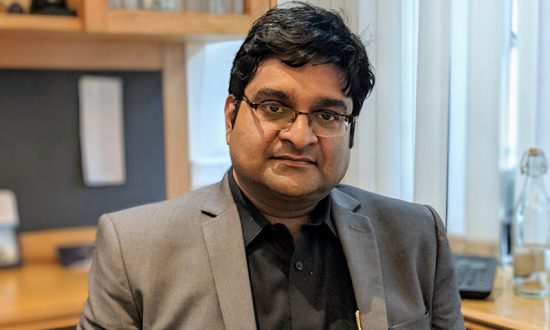Anurag Bansal, Senior Director and Business Head of HUGHES Global Education is a Mechanical Engineer from National Institute of Technology (NIT) Calicut, erstwhile Regional Engineering College (REC), a pioneer in the field of training and education. He has over 17+ years of professional experience with Ashok Leyland Ltd, Mahindra & Mahindra Ltd and Career launcher Ltd. He has also mentored over 5000 students and corporate executives all over India.
In the wake of COVID-19, there has been a significant shift in the evolution of learning trends. Online learning, remote workspace, virtual events & conferences, and digitization has become the new norm for learning and knowledge exchanges. The virtual rush that ensued has also spotlighted e-learning with students, graduates, and professionals, all looking to keep up with the evolving skill sets that match the industry requirements and syncs well with their career growth plans. According to a survey by Deloitte, nearly 92 per cent of academics agree that higher education institutions (HEIs) play a significant role in influencing the future workforce, making it imperative for these institutions to adopt newer strategies to reflect the changing complexities of future jobs. However, there continue to be gaps and discrepancies in teaching methods resulting in a workforce that fails to match the demands of the industry.
According to statistics from the Global Business Coalition for Education (GBC-Education), the Education (GBC-Education), the Education Commission, and the United Nations Children’s Fund (UNICEF), with changing needs of educational standards and nature of work, more than 50 per cent of Indian youth may find themselves fall short of the required education and skills by 2030. Therefore, HEIs need to build further on strategies to enhance student’s skills, as they prepare them for future challenges and achieve success in their respective workplaces. Apart from imparting the new age technical skills, the institutions must develop critical skills such as analytics and problem solving, business communication, flexibility, agility, and adaptability.
On the other side, the students expect technologically improved experiences from their institutions, especially with the growing democratization of technology and surge in smartphone usage. In an increasingly technology-driven world, academic institutions must embrace live interactive online learning and exploit new technologies such as analytics, cloud computing, mobility, and social media to expand access to educational content to keep pace with the growing demands. Moreover, they need to build new learning experiences towards enhancing learning outcomes.
The long-term solutions require increased focus on experiential learning, i.e. learning through doing or learning by experience. Students must get the opportunity to interact with industry experts and work on real-life cases outside of the classroom. The practice has already begun to gain traction at several Indian institutions. However, there need to be consistent efforts towards ensuring equal opportunities. According to the Deloitte report, 82 per cent of students prefer experiential learning, along with simulations and mock sessions. In comparison, approximately 41 per cent chose classroom training as their preferred method.
Besides, the government continued efforts towards building a comprehensive learning ecosystem – the current environment calls for an urgent review of the educational curriculum and highlights the need for institutions and HEI’s to create a more robust framework for knowledge and resource exchange. Partnerships between industry and academia are critical in filling the gaps and upskilling the future workforce, and creating newer opportunities for HEI’s. With greater collaboration, sharing insights, and practical training, the enterprise can contribute to students’ learning and improve their overall job readiness – in return, gaining easy access to quality resources, reducing the expense of training the newly recruited workforce. Moreover, HEIs benefit by having opportunities to work on cutting-edge technologies and advance research projects.
The transfer of expertise between business schools and industry should be encouraged so that graduates find themselves better prepared to take on managerial roles and fast track their career growth. Industry and academia should collaborate to create a curriculum created jointly with input from the perspective of skills required by the students for future job requirements. These changes have the potential to not only make the workforce future-ready but can also inspire and encourage the next generation of Indian entrepreneurs.




